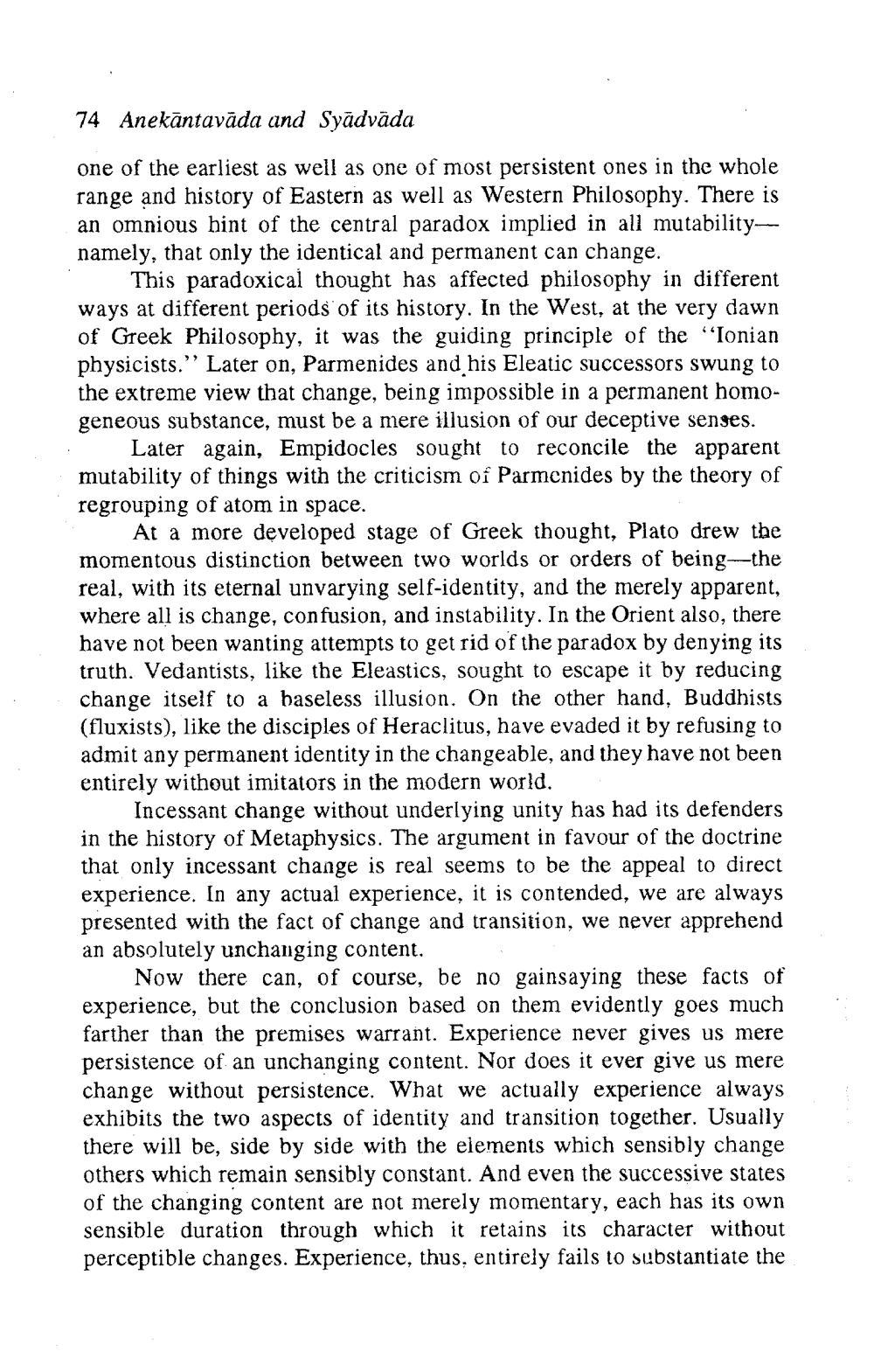________________
74 Anekāntavāda and Syādvāda
one of the earliest as well as one of most persistent ones in the whole range and history of Eastern as well as Western Philosophy. There is an omnious hint of the central paradox implied in all mutabilitynamely, that only the identical and permanent can change.
This paradoxical thought has affected philosophy in different ways at different periods of its history. In the West, at the very dawn of Greek Philosophy, it was the guiding principle of the ''Ionian physicists."' Later on, Parmenides and his Eleatic successors swung to the extreme view that change, being impossible in a permanent homogeneous substance, must be a mere illusion of our deceptive senses.
Later again, Empidocles sought to reconcile the apparent mutability of things with the criticism of Parmenides by the theory of regrouping of atom in space.
At a more developed stage of Greek thought, Plato drew the momentous distinction between two worlds or orders of being--the real, with its eternal unvarying self-identity, and the merely apparent, where all is change, confusion, and instability. In the Orient also, there have not been wanting attempts to get rid of the paradox by denying its truth. Vedantists, like the Eleastics, sought to escape it by reducing change itself to a baseless illusion. On the other hand, Buddhists (fluxists), like the disciples of Heraclitus, have evaded it by refusing to admit any permanent identity in the changeable, and they have not been entirely without imitators in the modern world.
Incessant change without underlying unity has had its defenders in the history of Metaphysics. The argument in favour of the doctrine that only incessant change is real seems to be the appeal to direct experience. In any actual experience, it is contended, we are always presented with the fact of change and transition, we never apprehend an absolutely unchanging content.
can, of course, be no gainsaying these facts of experience, but the conclusion based on them evidently goes much farther than the premises warrant. Experience never gives us mere persistence of an unchanging content. Nor does it ever give us mere change without persistence. What we actually experience always exhibits the two aspects of identity and transition together. Usually there will be, side by side with the elements which sensibly change others which remain sensibly constant. And even the successive states of the changing content are not merely momentary, each has its own sensible duration through which it retains its character without perceptible changes. Experience, thus, entirely fails to substantiate the




